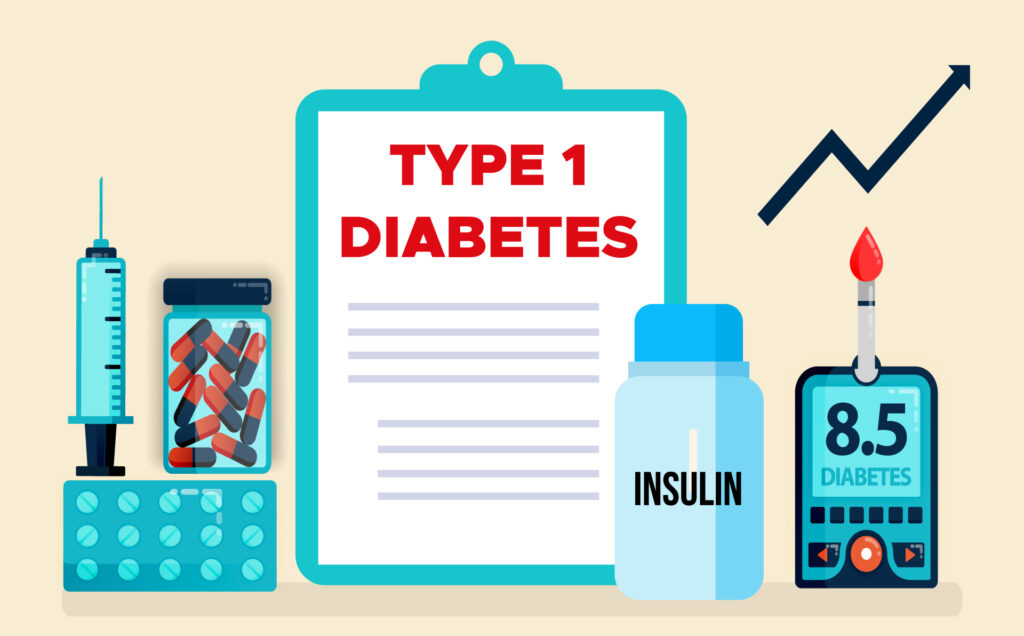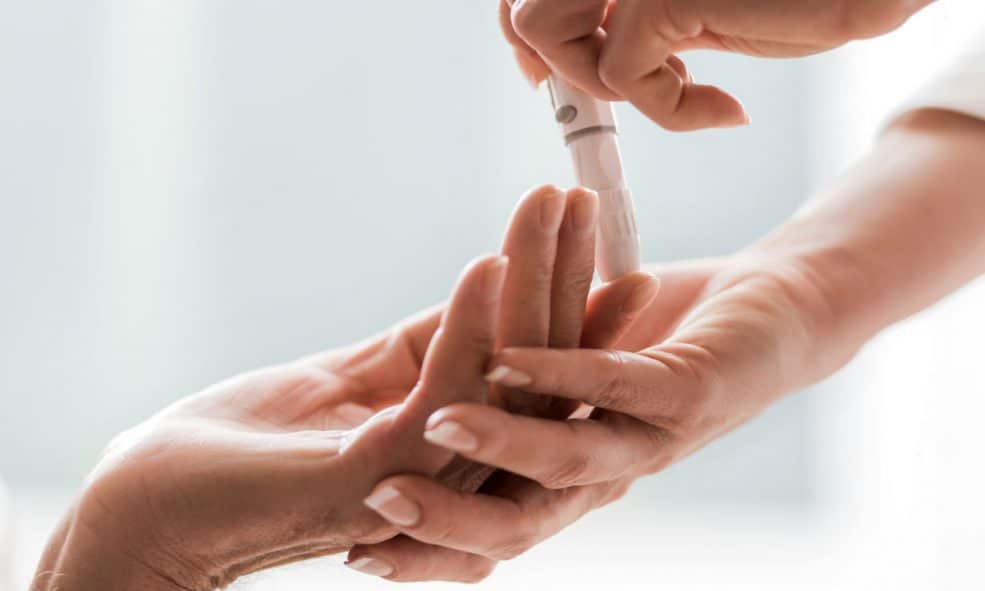Diabetes type 1 is a chronic disease that causes the cells in the pancreas, which are responsible for insulin production, to get destroyed. As a result, the body is no longer able to produce enough insulin, and the blood sugar levels remain high, threatening to endanger human life. It requires lifelong treatment in order to maintain blood sugar levels within normal ranges. Around 5% of all patients with diabetes are struggling with with disease. It is estimated that around 1 in every 430-530 people under the age of 19 in the United States alone are struggling with type 1 diabetes.

Preventing diabetes type 1 is not possible as it is in the case of diabetes type 2. it is thought to be an autoimmune disease, however, genetics and certain viruses are thought to have a role in the development of type one diabetes as well.
Symptoms
- Blurred vision;
- Excessive hunger;
- Excessive thirst;
- Frequent urination;
- Fatigue;
- Rapid weight loss.

Call (313) 600-4669
If Diabetes Is Not Treated
If these symptoms are not treated as soon as possible, multiple complications threaten to happen. The common complications of the disease is not treated include:
- Diabetic retinopathy;
- Diabetic neuropathy;
- Diabetic nephropathy;
- Heart disease;
- Stroke;
- Depression, etc.
Treatment
Treatment includes taking insulin several times a day through insulin pumps or insulin injections. Also, blood sugar levels are also regularly measured before each insulin therapy in order to determine how much insulin your body requires at the moment. Therefore, a healthy diet plan is designed for each patient to help keep their blood sugar levels stable. Also, Daily physical activity is also recommended as a way to keep blood sugar levels stable.
Patient Resources:
- Diabetes Partners in Action Coalition-DPAC
- National Diabetes Education Program-NDEP
- Northern Michigan Diabetes Initiative
- American Diabetes Association-ADA
- American Association of Diabetes Educators-AADE
- National Kidney Foundation of Michigan-NKFM
- JDRF
Call Dr. Achira, Diabetic Doctor at 313-600-4669 or Click here to Contact us.


